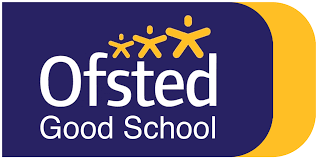Special Educational Needs (SEND)
Departmental Vision
Newman Catholic College is an inclusive school that is committed to anti-discriminatory practice and seeks to promote equality of opportunity for all our pupils and families. We aim for every pupil to fulfil their potential no matter what their background or personal circumstances.
We recognise that many young people with SEND background have historically been victims of discrimination and have therefore failed to realise their potential as both students and members of society. Thus we seek to ensure that not only do all SEND pupils receive their entitlement to the “powerful knowledge” that can help them both envisage and achieve an alternative life and understanding beyond their lived experience but also that they have the same right to access a full curriculum as the rest of their peers.
As a result we will :
- Provide a secure and accessible environment in which all our pupils can flourish and in which all contributions are considered and valued;
- Include and value the contribution of all families to our understanding of equality and diversity;
- Provide positive non-stereotyping information about gender roles, diverse ethnic and cultural groups and disabled people;
- Improve our knowledge and understanding of issues of anti-discriminatory practice, promoting equality and valuing diversity;
- Ensure that inclusion is embedded in our practice. We endeavour to support every pupil regardless of his or her level of need. All pupils follow the National Curriculum at a level and a pace that is appropriate to their abilities. At times and when we feel it is appropriate, modifications to the curriculum may be implemented.
In successfully matching pupils’ abilities to the curriculum, there are reasonable adjustments that we may take to achieve this:
- We ensure that all pupils have access to the school curriculum and all school activities;
- We help all pupils achieve to the best of their abilities, despite any difficulty or disability they may have;
- We ensure that teaching staff are aware of, and sensitive to the needs of all pupils, teaching pupils in a way that is more appropriate to their needs.
- We work in partnership with parents/ carers, pupils and relevant external agencies in order to provide for children’s special educational needs and disabilities;
- We aim to identify at the earliest opportunity, all children that need special consideration to support their needs (whether these are educational, social, physical or emotional);
- We make suitable provision for pupils with SEND to fully develop their abilities, interests and aptitudes and gain maximum access to the curriculum;
- We ensure that all children with SEND are fully included in all activities of the school in order to promote the highest levels of achievement.
Our aims reflect our motto “Everyone Counts, Every Contributes, Everyone Succeeds”
Inclusion Department:
| Members of Staff | |
|---|---|
| Miss S Jackson | Inclusion Leader / Special Educational Needs Co-Ordinator (SENCo) |
| Ms L Jones | Deputy SENCO |
| Mrs B Jeeves | SEND Link Governor |
| Miss A Johnson | Inclusion Administrator |
Learning Support Assistants:
- Mr A Mckoy
- Miss A Kabboua
- Miss A Sylvester
- Mr J Azevedo
- Mr M King
- Ms M Braithwaite
- Mr R Wiredu
- Mr R Cariaga
- Miss E Gunning
- Mr O Afikuyomi
Identification of SEN:
Pupils are identified according to the criteria for SEND as defined in the SEND Code of Practice 2015;
- Communication and Interaction
- Cognition and Learning
- Social, Emotional and Mental Health
- Sensory and/or physical needs
What are Special Educational Needs?
Definition of Special Educational Needs and Disability (SEND):
Pupils have special educational needs if:
- They have a significantly greater difficulty in learning than the majority of other pupils of the same age or;
- Have a disability which prevents or hinders them from making use of educational facilities of a kind generally provided for others of the same age in mainstream schools;
- Under the Equality Act 2010. Schools must not discriminate and they must make reasonable adjustments for disabled young persons;
- The definition of disability in the Equality Act includes children with long term health candidates such as; asthma, diabetes, epilepsy and cancer. These children may not have Special Educational Needs, but there is a significant overlap between disabled children and young people with SEN. Pupils might have a Medical (MED) need which does not necessarily imply SEN but they will be included on the school’s medical register.
If your child has more difficulties than most children their age with aspects of their learning, communication or behaviour, they are likely to benefit from additional support in school which will enable them to access the curriculum at their level. This is achieved by a flexible combination of extra support within lessons and some withdrawal lessons that are taught by our highly skilled SEN teachers.
We network with a number of services with the aim of providing the best support. Agencies/services include: Educational Psychologist, Occupational Therapy, BOAT, CAMHS, Outreach Support Workers and Speech & Language Therapy.
If you are concerned about your child's progress and think that your child may have a Special Educational Need or you are considering sending your child to Newman Catholic College and you would like to discuss this, please contact Sakina Jackson, Inclusion Leader on 02089653947 ext. 403.Email sjackson@ncc.brent.sch.uk
Inclusion /Support
At Newman Catholic College, we have several approaches to supporting pupils’ learning:
- Universal/ Wave 1 – This is the quality first teaching your child will receive from her/his class teacher and may include differentiated approaches to match pupils’ individual learning needs.
- Targeted /Wave 2 - It may be appropriate to consider making additional short term special educational provision to remove or reduce any barriers to your child’s learning. This takes the form of a graduated four part approach of a) assessing your child’s needs, b) planning the most effective and appropriate intervention, c) providing this intervention and d) reviewing the impact on your child’s progress towards individual learning outcomes.
- Specialist /Wave 3– It is sometimes essential to seek specialist advice and regular long term support from a specialist professional outside the school in order to plan for the best possible learning outcomes for your child. This may include educational psychology, speech and language therapy, occupational therapy, sensory advisory teachers and the child development service. The school may need to prioritise referrals to these services. However, for a very small number of pupils access to these specialists may be through a Statement of SEN or an EHC Plan.
Commonly used Acronyms
SEND-Special Educational Needs and Disability
SENCo-Special Educational Needs Co-ordinator
EHCP-Education Health Care Plan
SEMH-Social, Emotional and Mental Health difficulties
SALT-Speech and Language Therapy
EP-Educational Psychologist
SpLD-Specific Learning Difficulties
ASD-Autistic Spectrum Disorder
BOAT-Brent Outreach Autism Team
OT-Occupational Therapy
CAMHS-Child and Adolescent Mental Health Service
HLTA-Higher Level Teaching Assistant
SLCN-Speech Language and Communication Needs















